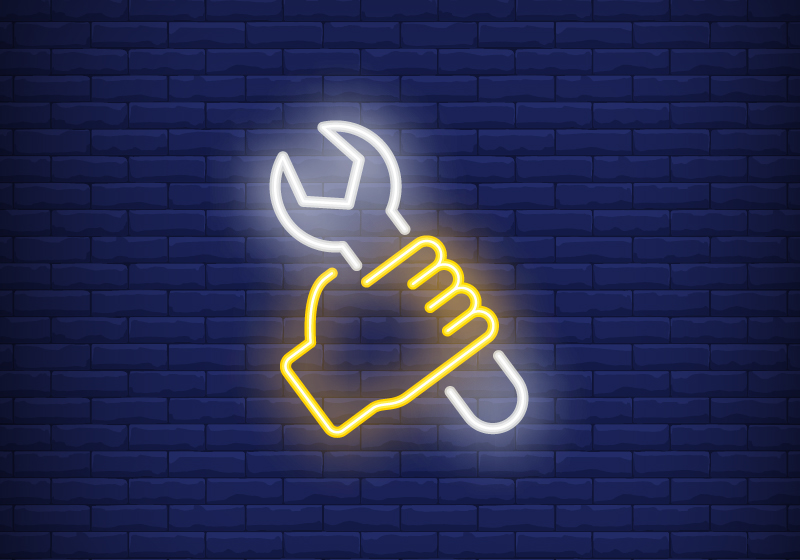When housing markets are hot, buyers have to be flexible when it comes to minor defects in a house they want. Because a home might have multiple competitive offers, it’s important to know how to get yours accepted so you can move into your dream home ASAP.
While it would be ideal if the seller offered to fix every issue your home inspector finds, that’s not often realistic. Instead, you need to know which items are potential deal-breakers and which repairs can safely be put off until after closing. We’ll show you when you should request repairs to a home you’re looking at buying, and when asking for a repair could needlessly sink the deal.
Don’t Sweat Little Issues
Buying a house is a big investment, so it makes sense that you’d want everything perfect. However, that’s not a reasonable expectation. Unless you’re building your home, every house is a used house, and they’re all going to have idiosyncrasies and blemishes that you’ll have to compromise on. What kinds of things are we talking about? Here’s a handy list:
1. Cosmetic Problems: There might be a crack in a tile, some scratched paint or old carpet you’re not a huge fan of, but these are issues that don’t cost a lot to repair and don’t affect the structural safety of the home you’re purchasing. A good way to think about it—if the problem you’re looking at causes your deal to fall through and the house goes back on the market, would the deal fall through again with the next interested buyer because of it? If the answer is no, think long and hard before you ask for these issues to be repaired by the seller.
2. Inexpensive Repairs: Anything that’ll be less than $100 to repair isn’t worth putting your deal on the line. There may be many little things wrong with the home you’re looking to buy, but you should ask yourself if any of them would really cause you to walk away. If none of the issues are safety concerns and you can prioritize repairs after you close, don’t get hung up on them.
3. Cracks in the Basement Floor: Believe it or not, not every crack in a concrete basement floor needs to be repaired. Odds are, in fact, that you have nothing to worry about if you spot one. Basement floors don’t support a home’s weight like the walls do, so most cracks in a concrete floor won’t have any effect on the home’s structural integrity. If you see hairline cracks, or even cracks that are up to 1⁄2 inch wide, no extensive repair is needed (usually just patching them with caulk will do). However, if the basement floor cracks and the slab heaves upward, that’s a problem you’ll want to take a closer look at.
4. Failed Window Seals: While a fogged double-pane window might be less than pleasing to look at, it’s considered a cosmetic issue only, and has little effect on the windows insulating power and the energy savings they provide. If there are fogged windows everywhere in the house, you may consider asking that they be replaced, but if there’s only one or two then it usually isn’t worth the trouble.
5. Minor Water Damage: When a home undergoes water intrusion on any interior building materials like drywall or wood, the signs can sometimes look worse than they are. Your home inspector will definitely take notice of these areas, and they’ll also be able to tell you if they indicate a more significant problem. If this is the case, it’s definitely appropriate to request a repair. However, if the water damage came from an isolated incident and is only cosmetic, you shouldn’t worry about it.
When You Should Request a Repair
Now that we have the cosmetic issues out of the way, what should you pay special attention to on your inspection report? In short, anything that has a direct structural or mechanical effect on the home or its systems, or anything about the home environment that has the potential to cause an unsafe living condition for your family. These major issues can include:
The list above is a great place to start in understanding major issues with your potential home, but it isn’t exhaustive. If you have questions about whether something on your home inspection report qualifies as a major issue you should be concerned about, just ask your inspector! They’ll be able to explain the severity of any issue they find in your home.
Call NPI today to schedule your home inspection.National Property Inspections has the expertise to provide a full report on the condition of your home. Find an inspector near you today to invest with confidence.




